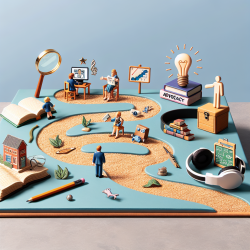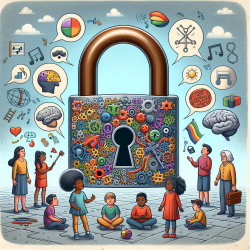Unlock the Secrets of the Anthropocene: How to Transform Your Practice with Groundbreaking Research!
In the ever-evolving landscape of education, staying informed and adaptive is crucial for practitioners aiming to enhance their skills and impact. The research article "Our Future in the Anthropocene Biosphere" provides a comprehensive overview of the dynamic interplay between humanity and the biosphere, emphasizing the need for transformative change towards sustainable futures. As a Special Education Director, understanding these concepts can significantly influence how we approach education and therapy within our school districts.
Understanding the Anthropocene
The Anthropocene is a term used to describe the current geological epoch, characterized by the significant impact of human activity on the Earth's geology and ecosystems. The research highlights that humanity has become a major force in shaping the future of the Earth system, causing climate change, biodiversity loss, and growing inequalities. These challenges require a systemic approach to ensure the resilience and sustainability of our societies.
Implementing Research Outcomes in Education
As practitioners, we can draw valuable insights from this research to improve our educational practices:
- Foster Resilience: Incorporate resilience-building strategies into educational programs to help students adapt to change and uncertainty.
- Promote Sustainability: Integrate sustainability education into the curriculum to raise awareness about environmental issues and inspire students to become active stewards of the planet.
- Encourage Innovation: Support innovative teaching methods and technologies that enhance learning and address the challenges of the Anthropocene.
Encouraging Further Research
The research emphasizes the importance of emerging technologies, social innovations, and active stewardship in transforming our future. As educators, we should encourage students and colleagues to engage in further research and exploration of these areas. By fostering a culture of curiosity and critical thinking, we can empower the next generation to navigate the complexities of the Anthropocene effectively.
Conclusion
Incorporating the insights from "Our Future in the Anthropocene Biosphere" into our educational practices can lead to significant improvements in how we prepare students for the future. By fostering resilience, promoting sustainability, and encouraging innovation, we can create a more adaptive and informed educational environment.
To read the original research paper, please follow this link: Our Future in the Anthropocene Biosphere.










